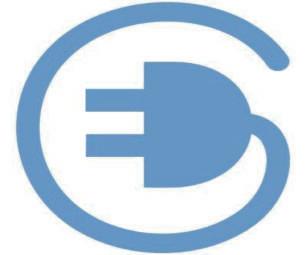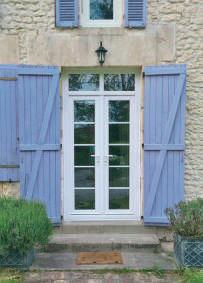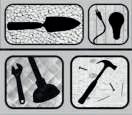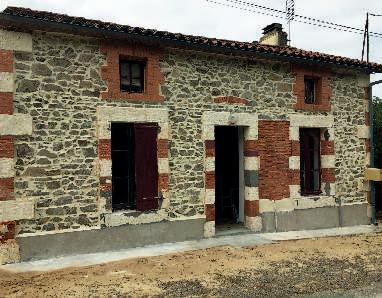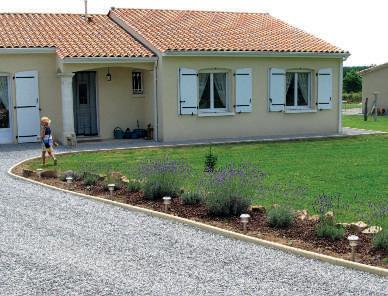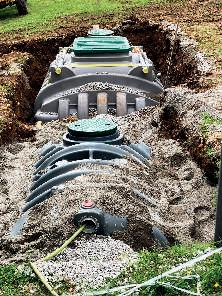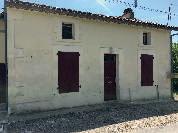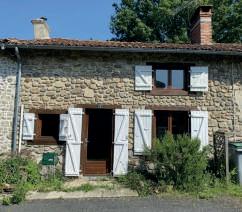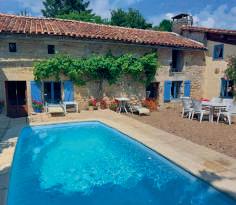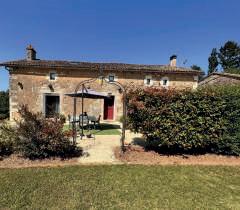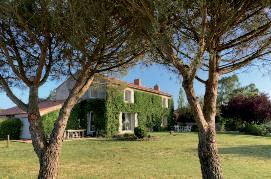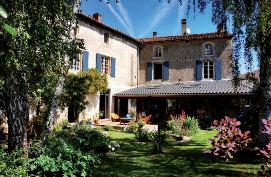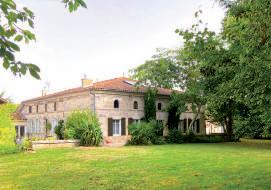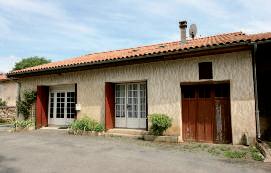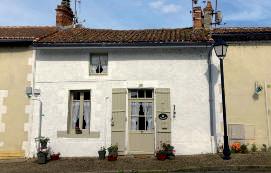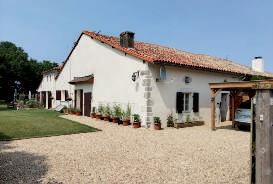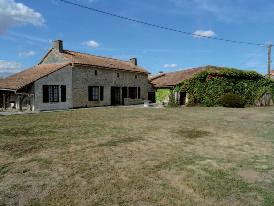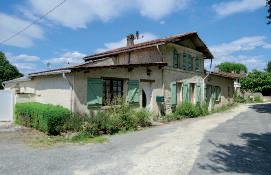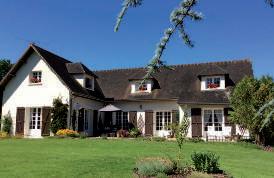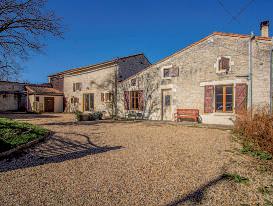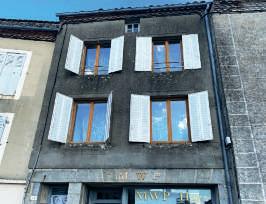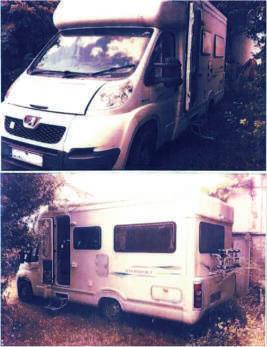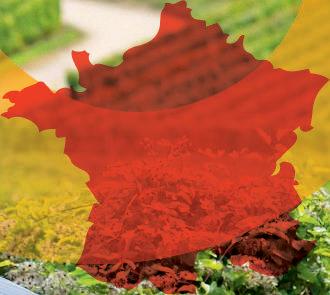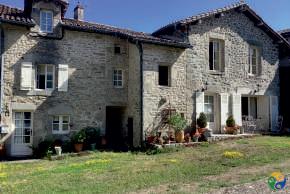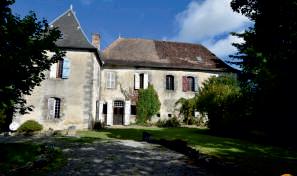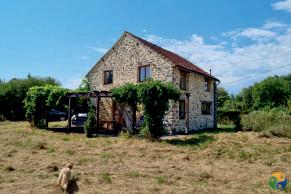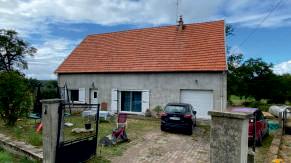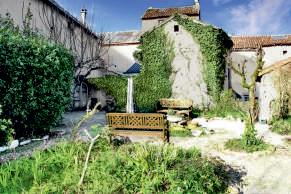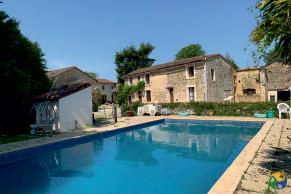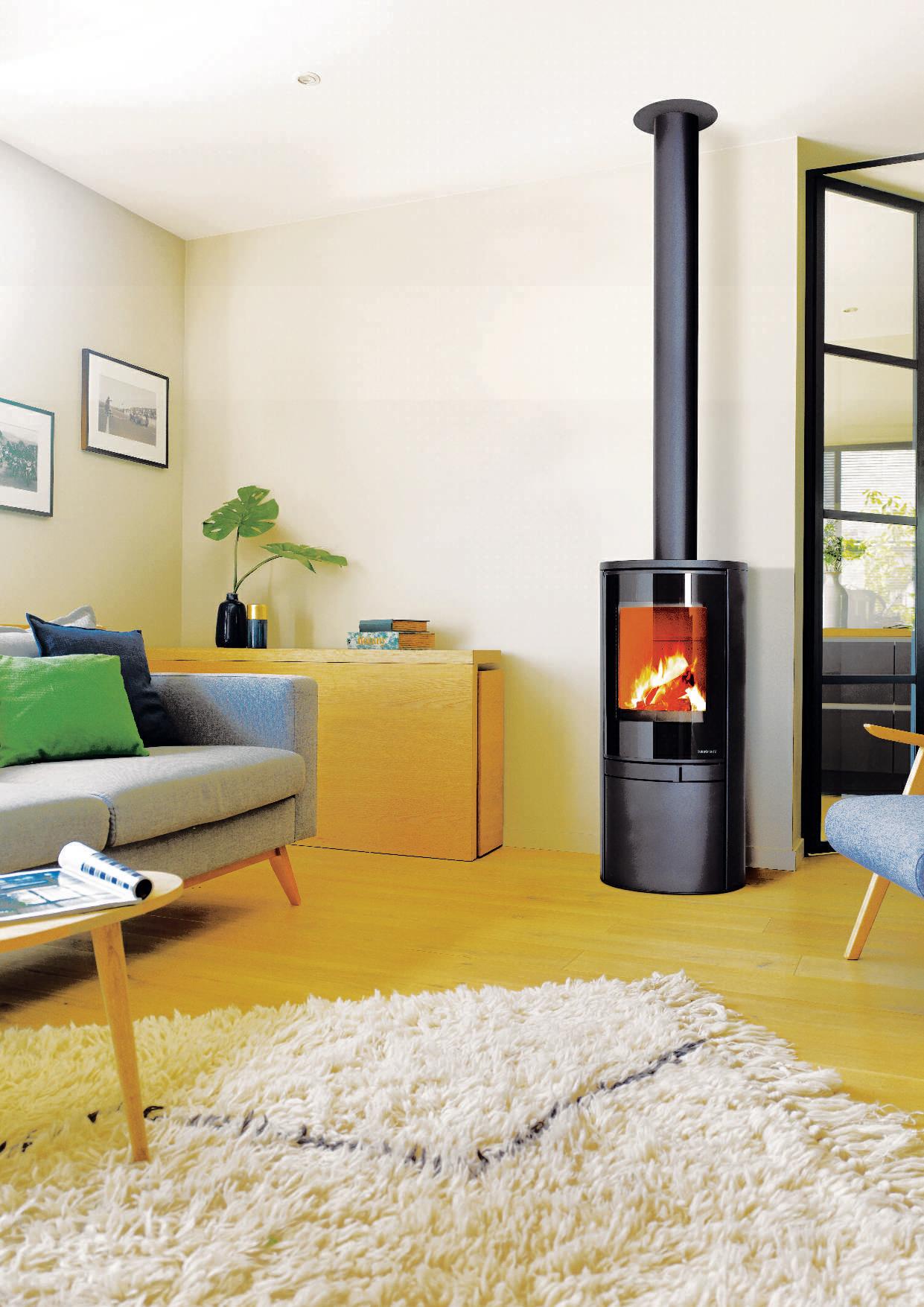








































































CONTACT US:
Tel: 05 17 36 15 32
email: editors.etcetera@gmail.com website: www.etceteraonline.org
17 rue des Chaumettes 86290 St Léomer
etcetera magazine @etceterafrance
Welcome to the October edition of etcetera magazine.
This month we see the nights drawing in, as well as the clocks changing. Fires will be lit and we all start to ‘hunker down’ for the winter ahead. With this, we experience the change of the scenery around us, the wildlife, the beautiful night skies, and the chance to enjoy our homes with a new seasonal feel.
Wishing you all a wonderful month ahead.

15
17
18 Pompiers (Fire and also trained in medical emergency)
114
119
113 Drugs and alcohol
112 European emergency not always English
1616 Emergency- Sea & Lake
3131 Last incoming call, key ‘5’ to connect Orange
English speaking helpline
0033 (0)9 69 36 39 00
Website in English: www.orange.com/en/home
Commercial adverts: Please see our Media Pack at www.etceteraonline.org

What’s On/Listings: 12€ per 50 words for a guaranteed spot or free (space permitting)
Classified listing: 6€ per 25 words plus 3€ per photo
Property listing: 10€ per 50 words plus 6€ per photo

Code APE 5814Z Edition de Revues et Periodique
Siret 80903463000016. La Présidente G. Feasey
Registered. Le Bourg, 87360 Verneuil Moustiers.
Impression: Rotimpres. Pol. Ind Casa Nova. Carrer
Pla de l’Estany s/n. 17181 Aiguaviva (Girona) Espagne. etcetera est gratuit.
While we always do our best to ensure the content in this magazine is given in good faith and businesses are reputable, we accept no liability for any errors or omissions and do not endorse any companies, products or services. Articles written are the personal opinions of the original authors and do not necessarily reflect the views of etcetera magazine.
Technical assistance for landlines (French): 3900 (+33 9 69 39 39 00 from abroad)

SFR 1023 or 00336 1000 1023 (Not English)
EDF
8am to 8pm, Monday to Saturday.
+33 (0)9 69 36 63 83 EDF Helpline in English
0033 562164908 (From UK)
05 62 16 49 32 Fax
E-mail: simpleenergywithedf@edf.fr


CPAM - 09 74 75 36 46
Veolia Water Emergency No: 24h/24 et 7j/7
05 61 80 09 02 (press 1 for urgent problems or 2 for a technician)
S.E.P Du Confolens (Water)
05 87 23 10 08 Emergency 24/7
Aéroport Int’l Limoges 05 55 43 30 30
SNCF (train times, buying tickets etc) 36 35
Alcoholics Anonymous
For contact details of meetings in your area including those conducted in English, visit www.aafrance.net

HOSPITALS
05 55 05 55 55 Limoges (CHU)
05 55 43 50 00 St Junien
05 55 47 20 20 Bellac
05 49 44 44 44 Poitiers
05 45 24 40 40 Angoulême

05 49 32 79 79 Niort
05 45 84 40 00 Confolens
Women for Women in France offering support to foreign-born (non-French speaking) women dealing with domestic abuse www.womenforwomenfrance.org

Counselling In France Counsellors, psychotherapists, NLP, CBT etc offering therapy in English to expatriates all over France on www.counsellinginfrance.com

SSAFA France 05 53 24 92 38 email france@ssafa.org.uk
French Health Insurance Advice line CPAM English speaking Advice line: 09 74 75 36 46 (from France)

0033 974 75 36 46 (from other countries). The line is open from Monday to Friday, from 8:30 a.m. to 5:30 p.m.
NHS website : www.nhs.uk/using-thenhs/healthcare-abroad
www.ameli.fr
No Panic France Helpline: No Panic UK helpline:
0044 1 952 590 545 11h - 23h (French time) 7/7 www.nopanic.org.uk /nopanicfrance@orange.fr
English-speaking Crisis Line
SOS- HELP 01 46 21 46 46 3pm-11pm 7/7
British Consulate in Paris 01 44 51 31 00
British Consulate in Bordeaux 05 57 22 21 10
www.ukinfrance.fco.gov.uk/en/
Credit Agricole English Speaking Helpline
Charente (residents only) 05 45 20 49 60




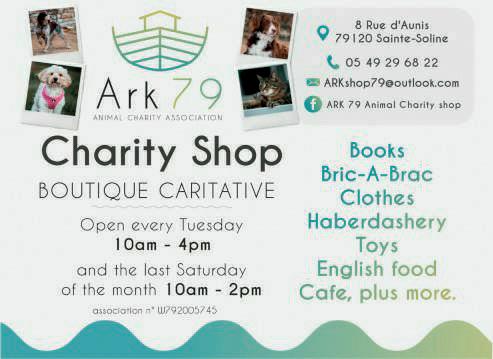

























Materials
Pumpkin (choose one without any damage, that’s firm and has a good stalk). TIP! Only start this craft a few days before to ensure the pumpkin is still good for Halloween!
Metal spoon or scoop
Printed template
Washable markers (if drawing by hand)
Pumpkin carving tool kit or a good serrated paring knife
A utensil to poke holes for your template (if you don’t have a kit)
LED candles
1. Lay down newspaper or a plastic tablecloth to catch any mess and make the cleanup easier.
2. Have your carving kit or knife, spoon, markers, and design template (if using) ready.
3. Use a serrated knife to cut a circular hole around the stem at the top of the pumpkin. Angle the cut slightly inward so that the lid doesn't fall inside. This will serve as the pumpkin's "lid."
4. Use a large spoon or your hands to scoop out the seeds and stringy pulp from inside the pumpkin. You can save the seeds for roasting if you like. You can save yourself a bit of clearing up by doing this over the kitchen sink, it’s easier to clean.
5. If you have a design template, tape it onto the pumpkin's surface. Use a sharp utensil from the pumpkin carving tool kit to poke holes through the paper stencil to outline the design (a pin or a nail will do). If drawing by hand, use the marker to trace the design onto the pumpkin's skin.
6. Carefully follow your traced design or create your own by gently cutting along the lines with the appropriate
By Gayle Feaseycarving tool. Start with the smaller details and work your way to the larger sections.
7. Feel free to get creative with your design! You can carve classic jack-o'lantern faces, spooky scenes, or intricate patterns.

8. Place a tea light or LED candle inside the pumpkin. Lighting from within creates a spooky glow.

9. Find a safe and prominent spot to display your carved pumpkin. You can also add other Halloween decorations to enhance the spooky ambiance.
Maintenance:
To keep your pumpkin looking fresh, you can rub petroleum jelly on the cut edges to prevent drying out, or you can refrigerate it when not in use.
Safety:
If you're using a real candle, never leave it unattended, and keep it away from flammable materials. LED candles are a safer alternative.
With these instructions, you can create a beautifully carved pumpkin to add to your Halloween decorations and festivities. Enjoy your pumpkin carving!
Siret
Contact Andrea: 06 17 45 65 60 ateliernumero18@gmail.com


Place Rue de la Republique 860290 La Trimouille
TUNING & REPAIRS
Never throw away your treasured piano, until we have seen it! We have repaired and reconditioned pianos in England and in France for over 40 years, from mini pianos to concert grands. Many years of experience.

Telephone: 05 45 21 16 13
Email: mr-piano-man@hotmail.com


Browse our selection of unique gifts, enjoy a meal from our new menuindoor & terrace seating available. BESPOKE by Denise can also be contacted directly on 06 75 89 95 55
To view our collection, please visit our FB page: www.facebook.com/bespokedenise.eyre



Encadrement d’Art
1 Rue du 19 Mars 1962
87150 Oradour sur Vayres
Custom Framing for Arts, Crafts & Memorabilia


John Selley EI - 09 77 00 66 38


Email: encadrement.oradour@gmail.com
Picture framers to La Galerie de Gabriel EI

LES LETTRES ADMINISTRATIVES FRANÇAISES PEUVENT ÊTRE REMPLIES DE VOCABULAIRE BIEN SPÉCIFIQUE ET DE JARGON ADMINISTRATIF, ET CE N’EST PAS TOUJOURS SI FACILE QUE CELA DE BIEN COMPRENDRE CES LETTRES
les français adorent la phrase suivante, qui pourrait servir à qualifier le jargon administratif : « c’est compliqué ! ».
je vous donne ici quelques phrases typiques et du vocabulaire que vous pouvez rencontrer, et leur traduction en anglais. je pense que cela vous aidera dans la vie quotidienne.
lettre recommandée avec avis de réception (lrar)
recorded letter with a receipt notification slip
veuillez trouver ci-joint … please find enclosed … à qui de droit to whom it may concern par la présente, je vous informe que … with this letter, i inform you that…
j’ai le plaisir de vous annoncer que …
i have the pleasure in announcing to you that …
j’ai le regret de vous annoncer que …
i have regrets in announcing to you that …
veuillez nous renvoyer ce formulaire rempli sous pli affranchi
please return the completed form in a stamped envelope
veuillez nous envoyer une enveloppe affranchie adressée à votre nom please send us a stamped self-addressed envelope
il est de votre responsabilité de faire…
it is your responsibility to do… / it is up to you to …
cela ne vous engage en rien it does not commit you to anything vous pouvez faire cela dans votre espace personnel en ligne you can do that in your online account nous vous répondrons incessamment sous peu we will respond to you shortly il vous incombe de faire … you must do… / you have to do … / it is your responsibility to do … vous pouvez nous retrouver en tapant notre nom dans votre navigateur internet you can find us by typing our name into your search engine
n’hésitez pas à nous contacter do not hesitate to contact us
en cas de problème, vous n’avez qu’à nous téléphoner au … in case of a problem, you need only call us on …
nous vous prions de nous envoyer un justificatif de domicile de moins de trois mois
please send us proof of address (electricity bill or water bill or landline phone bill) less than 3 months old
vous devez faire votre déclaration de sinistre dans les 24 heures you must make your claim (declaration of damages) within 24 hours
en cas de résiliation de ce contrat, un préavis de deux mois vous est demandé
in case of cancellation of this contract, two months’ notice is required en votre aimable règlement please pay
nous vous remercions de libeller votre chèque à l’ordre de … please make your cheque payable to … nous réglerons ce problème à l’amiable
we will resolve this problem to our mutual satisfaction
le montant total de cette facture s’élève à … €
the total amount of this bill is ….€ vous pouvez vous acquitter de votre dette, soit en nous téléphonant, muni de votre carte bancaire, soit en prenant rendez-vous dans nos bureaux
you can pay off your debt, either by calling us with your bank card, or by making an appointment at our offices je reste à votre disposition pour tout renseignement complémentaire
I remain at your disposal for any further information
j’aimerais faire une demande d’échelonnement pour régler cette facture
I would like to request to pay this bill in instalments
j’aimerais faire une demande de délai de paiement
I would like to request to pay this bill at a later date
je m’engage à régulariser ma situation dans les plus brefs délais
I commit to resolve my situation as soon as possible

ne …(verbe) … que only contre son plein gré against one’s own will une facture a bill / an invoice une commande an order


un devis a quote / estimate un rappel
a reminder
une démarche administrative an administrative process / step
un expéditeur a sender un destinataire a recipient / addressee le recouvrement the collection (of debts) le service contentieux the legal department le titulaire du compte the account holder quiconque whoever une notification a notification renseigner (verbe) to give information un renseignement information

Élargissez vos horizons avec CONTINENTAL HORIZONS !
Broaden your horizons with CONTINENTAL HORIZONS!
Isabelle works for CONTINENTAL HORIZONS Language Centre in L’Isle Jourdain 86. She is a specialist Teacher of French as a Foreign Language with more than 26 years’ experience.
Do not hesitate to contact her on 06 20 10 34 49 or 05 49 84 17 73
Learn French with Continental Horizons! Contact us by email : continentalhorizons@free.fr
Special Offer in October 2023
Send an email to continentalhorizons@free.fr and include in the subject “Free French lessons”. Give your name, address, telephone number, and tell us about your level in French and your experience in learning French. Write your story!


TEN people will win a 1.5 hour lesson in the month of October
In our Centre in L’Isle Jourdain (86150), with Isabelle with 26+ years’ experience in teaching French as a Foreign Language to adults.
Bonne chance !
une signification
a meaning
une échéance
a date of payment / an expiry date


un échéancier
an instalment plan / a payment schedule
un prélèvement automatique a direct debit

un mandat sepa a direct debit authorisation form
un t.i.p. (titre interbancaire de paiement)
a payment slip (to sign and date, when it has your bank details on, in order to pay a bill)
un r.i.b. (relevé d’identité bancaire) a slip with your bank account details
un dégât / les dégâts the damage(s)
une collectivité locale a local authority
l’assainissement collectif the mains drainage régler une affaire (verbe) to sort out some business




régler une facture (verbe) to pay a bill
une résiliation (d’un contrat) a cancellation (of a contract)
résilier un contrat (verbe) to cancel a contract

un bail / des baux a rental agreement / a lease
une procédure a procedure / a process une proposition commerciale a commercial offer
un besoin a need
avoir besoin de (verbe) to need
un abonnement a subscription / a line rental
une prestation de services a service

une fourniture stationery, a supply
la concurrence the competition
un appel d’offres a bid / tender
un fournisseur a supplier

une règle a rule
une négociation a negotiation
un partenaire a partner
le propriétaire
the owner / the landlord
le locataire
the person hiring / the tennant
un remboursement
a reimbursement / a refund

rembourser (verbe)
to pay back / to reimburse / to refund
une réduction
a reduction
une offre spéciale a special offer
une indemnisation a compensation
une exonération an exemption
le solde
the balance
mettre à jour (verbe)
to update
un mot de passe a password

un découvert an overdraft

un impayé an outstanding debt

une amende a fine / a penalty
une créance a debt
un créancier a debtor
une commission a fee
les honoraires (masc, pl) the fees
le siège social the head office
IF YOU’RE COOKING FOR VEGETARIANS, VEGANS OR THOSE NEEDING A GLUTEN-FREE DIET, HERE ARE MY TRIED AND TESTED RECIPES


As I write this month’s column, I’m bang in the middle of hosting a Yoga Retreat here at Chateau Mareuil. The fact that I love to cook is no secret, but more than anything, I really enjoy the challenge of providing delicious food for people who are either not able to, or who would prefer not to eat certain food groups.
This week, I am cooking an all-vegetarian menu for our guests, but we also have gluten free and vegan requirements to cater for – so I am preparing dishes that everyone can tuck into!
So here are some suggestions for really tasty, healthy dishes to suit everyone.


Ingredients (Serves 6 -8)
4 tbsp olive oil

750g fresh mushrooms of your choice

2 cloves of garlic, sliced
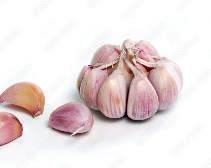
1 tsp dried thyme
100-150ml coconut or soy cream
Method
1. Heat the oil in a pan over a high heat and fry the mushrooms for 15-20 mins until very soft, and any liquid that’s been released has evaporated. Stir in the garlic, thyme, 1 tsp sea salt and about ½ tsp of ground black pepper, and cook for 3 mins more. Leave to cool slightly.
2. Transfer the mushroom mixture to a food processor and blitz to a thick
ByBelindaPrinceBelinda, the ‘Accidental Chatelaine’ loves to cook at any opportunity and is delighted to be able to share that love with you

www.chateaumareuil.com
paste. Add 100ml of coconut or soy cream, then blitz again to achieve the texture you like, scraping down the sides as you go. You may need to add up to 50ml more of the cream.
3. Season to taste, then spoon into a serving dish or bowl and smooth the top with the back of a spoon and cover with cling film or place in a plastic container until ready to serve. Cover and chill for 2 hrs until firm.
Will keep in the fridge for at least 24 hrs.
Ingredients (Serves 6)
1 butternut squash
2 tbsp olive oil
2 tbsp vegetable or olive oil


2-3 onions, diced
2 garlic cloves, finely sliced
1 or 2 celery sticks, finely diced
1 tsp peppercorns, freshly ground
1 tsp ground turmeric (curcuma)
½ tsp ground cinnamon (cannelle)
½ tsp ground ginger (gingembre)
100g red lentils
1x 400g tin of chickpeas (pois chiches), drained and rinsed
500ml passata (purée de tomates)
1 pack fresh coriander
handful fresh parsley
1 ltr vegetable stock
50g gluten free small pasta shapes


Method
Pre-heat the oven to 200ºC/180ºC fan
1. Peel, deseed and chop the squash into large chunks. Toss in the olive oil, season with some salt and roast in a large baking tray for about 30 minutes until just tender but retaining some bite.
2. Heat the oil in a large pan over a medium heat. Add the onions and fry until just starting to turn golden. Add

Ingredients (Serves 6)
4 tbsp vegetable oil
2x 400g tins of beans of your choice (red kidney beans, haricots blancs, chickpeas etc)
1x 400g tin of sweetcorn
1 tsp red chilli flakes
1 tsp whole mustard seeds
1 tsp whole cumin seeds
2x 400g tins of chopped tomatoes
½ tsp ground turmeric
2 tsp ground coriander
2 tsp ground cumin
2 fresh green chillies *
2 cloves of garlic, crushed
2 tsp grated fresh ginger pulp
2 tsp sugar
1 tbsp salt
Chillies* - I buy fresh chillies when I see them and pop them straight in the freezer. No need to defrost, just slice from frozen and add straight to the pan.
Method
1. Pour the oil into a medium size pan over a medium heat. When the oil is
the garlic and celery and cook for a further minute or so, then add the pepper and spices, stirring for a couple of minutes until fragrant.
3. Add the lentils, chickpeas, purée de tomates, chopped parsley and about half the coriander, chopped. Continue to cook, stirring frequently over a low heat for about 10-15 minutes.

4. Add the stock, cover and simmer for about 20 minutes, then add in the roasted butternut squash and the pasta. Simmer gently together until the pasta is al dente, then season to taste.
Serve with the remaining coriander scattered over the dish.
hot, put in the mustard seeds, cumin seeds and chilli flakes.
2. Stir into the oil and as soon as the mustard seeds begin to pop, add the tomatoes. Stir together and then add the turmeric, coriander, cumin, sliced green chillies, garlic, ginger, sugar and salt. Stir and bring to the boil, then reduce the heat and simmer gently for 5 minutes.
3. Drain the beans and sweetcorn and add to the pan, heat through gently until heated through.
Serve with fresh coriander and fluffy rice.
Ingredients (Serves 6-8)
150g polenta
150g ground almonds
150g caster sugar (sucre en poudre)
150g vegetable spread, in pieces
1 egg

1 tsp ground cinnamon
300g frozen red fruit mix
Method
1. Lightly grease a 23cm loose bottom flan tin and line with baking parchment.
2. Pre-heat the oven to 180ºC/160ºC fan
3. Simply place all the ingredients, except the fruit, into a food processor and process until well combined.
4. Taking about half of the mixture, gently spread it into the bottom of the tin and push to the edges with your finger tips.
5. Scatter over the frozen fruit right up to the edges.
6. Sprinkle over the remaining mixture in small pieces until the fruit is almost all covered, then spread gently with a wet fork to cover as completely as possible.
7. Bake for about 45 minutes until the top is lightly golden and firm to the touch.
Delicious dusted with icing sugar and served with coconut cream.
Ingredients (Serves 6-8 -can easily be halved)
1kg fruit of your choice (plums, peaches, berries etc)
1tsp vanilla extract (optional)
Sugar to taste
For the crumble


120g caster sugar (sucre en poudre)

220g maize flour (or other gluten free alternative)


220g ground almonds
1tsp ground cinnamon (optional)
220g dairy free spread

Method
1. Prepare and chop the fruit as necessary, mix with the vanilla extract and up to 100g sugar according to

taste (remember, the crumble topping is sweet)
2. Place the flour, almonds and cinnamon (if using), in a bowl and mix together well. Scoop spoonfuls of the dairy free spread into the bowl and rub in with your fingertips until the mixture resembles breadcrumbs. Add the sugar and mix well together.
3. Scatter the crumble over the fruit and cover it up to the edges of the dish.

4. Bake in a hot oven for about 50 minutes until the top is golden and the fruit is bubbling around the edges.
Delicious served with coconut cream.
Ingredients (Makes about 10)
85g sugar free alternative (eg Canderel Pâtisserie)

1 egg


100g chocolate chips*/raisins/ chopped nuts
150g polenta
85g vegetable spread

Pinch of salt
Method
1. Pre-heat the oven to 180ºC/ 160ºC fan

2. Melt the spread in the microwave for 30 seconds.
3. Mix the polenta and the sugar alternative together in a bowl, add the melted spread and the rest of the ingredients. Mix together until you have a soft dough.
4. Cover a baking tray with greaseproof paper. Take small handfuls of the dough, form into rough balls and place well spaced out on to the baking tray. Pat down into cookie shapes with a damp fork.
5. Place in the oven until golden brown – about 10 minutes.
6. Remove to a rack and leave to cool.
*Be sure to check the chocolate chip ingredients for dairy or gluten.






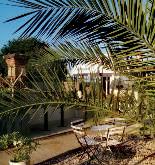






Well, I lost count how many times I had British people asking how to cancel insurance in France (not from my customers of course, as nobody wants to leave BH Assurances!). Note also that in France, insurance contracts are renewed automatically! I know, in Britain, you just phone them and tell them you want to cancel and that’s it! But surprise, surprise, you are in France and we like paperwork! So, here is how to cancel your insurance.
Anniversary Date / Date D’échéance:
The important thing to find out about your insurance contract is the “date d’échéance” which is the anniversary date of your contract. Be careful, as sometimes, some companies will automatically put 1st of January as an anniversary date, so it is not always the date when you took out the contract originally. You can find this date on the original contract you signed or on the renewal notice you receive once a year. Normally, when you take out any insurance, it is for one year minimum (there are exceptions - see ‘Exceptions’). So, you need to see it through until the anniversary date. Before the new law ‘Loi Hamon’, the only way you could cancel was by sending a registered letter 2 months prior to the anniversary date saying you wish to stop the insurance at its next anniversary (in 2 months)! Be careful, with some company‘s top up health insurance, it can even be 3 months!
The other way to cancel is ‘Loi Chatel’ and with this method you have 20 days from receiving the renewal notice to send a registered letter saying you wish to stop the insurance. Do note that some companies actually send the renewal notice at the last minute, even sometimes after the actual renewal date so you think it is too late! But it is the date on the envelope (post office stamp) that counts and not the date on the letter, so always keep the envelope when you choose this method. This method does not work for
professional insurance such as public liability or décennale insurance or even with some health top up policies. It always works for car and house insurance.
Loi Hamon and New Law for Health
Top up:
Since January 2015, you can cancel your car and house insurance anytime you want as long as you have had the contract for at least one year. From 1st December 2020, you can also do it for top up health insurance. From 1st of July 2023, it also works for caravans, accident insurance, legal protection insurance, pet insurance, unpaid rent insurance, and special object insurance. This new law does not work for professional insurance.
How to Cancel Using Loi Hamon:
House insurance as an owner, accident insurance (GAV in French), legal protection insurance, special object and pet insurance:

You simply have to notify your insurer with a letter and the cancellation will be effective one month and 3 days after receiving the letter (email is possible if you can be identified properly with it).
Health, cars, caravans, and house (as a lodger) insurance:

The cancellation must be done by your new insurer! (Hopefully me!) Because car and caravan insurance and house insurance for lodgers are a legal obligation, the French government decided not to trust people! Therefore, to make sure that they are still insured, the cancellation can only be made by their new insurer. Not sure why but it is also like this for health top up.
Exceptions:
Obviously, there are exceptions which allow you to stop your insurance without using the methods above. If you sell your car or caravan, you can cancel the

insurance by showing your certificate of sale (certificat de cession de vehicule - this can be downloaded from the internet) and the insurance will stop from the day after the date of sale. If you sell the car abroad, always get a proof of sale of some sort. Without paperwork, it is illegal for an insurance company to stop a car insurance contract before its anniversary date! If the car stops working, proof from the garage or mechanic can be accepted (it does with us). If you move back to the UK, we need proof of insurance from the UK.
If you sell your house, you can stop the house insurance with the paperwork given to you by the notaire on the day of the sale.
For the health top up, it can be stopped if you move abroad and stop being covered by the French system. In this case, they can issue you a letter saying you are not in the French system any more and the insurance is stopped. Otherwise, proof from the UK showing that you are covered under the UK system should be enough. For professional insurance, you can cancel with proof from RSI or MSA saying you have closed the business. Otherwise, you can only cancel with a 2 months’ notice prior to the anniversary date. Basically, when there is nothing to be insured and you can prove it, the insurance can be stopped.
Conclusion:
Hopefully now you should all be willing to switch your insurance to me and BH Assurances especially when you know that we take care of all the cancellations for you. So, if you are happy with my quotes, I will do it all for you and you have nothing to do. Also, we have bilingual employees to deal with claims, administration, accounting, and other assistance. So, no excuse for waiting until the anniversary date to get cheaper/ better insurance!
is the date on the envelope (post office stamp) that counts and not the date on the letter
Growing up in France, Lauren has experienced firsthand the complexities of the administration system, especially for non-French speakers. She’s here to accompany you on your French journey, offering admin help, translation, interpretation, and a deep understanding of the French system (See ad on page 13)

France, with its rich culture, picturesque landscapes, and vibrant cities, is a popular destination for many individuals from the United Kingdom seeking new adventures, education, or work opportunities. If you're planning to travel to France for an extended stay, you'll likely need a visa. In this article, we are talking about an application for a temporary long-stay visa, allowing you to spend up to 6 months in France. To live in France you need to apply for a different visa (carte de séjour, also known as titre de séjour) to move here full-time. This month, we'll guide you through the temporary long-stay visa application process, step by step.
Step 1: Begin with the Visa Wizard
Your journey to securing a French visa starts with the Visa Wizard, an online tool on the France Visa website designed to assist applicants in determining the appropriate visa type and requirements.
Here's how to get started:
time to fill out the online visa application form. Here's how to do it:
1. Visit the official France Visa website (https://france-visas.gouv.fr/).
2. Click on the "Apply for a visa" tab.
3. Select "Long stay" if your intended stay in France is more than 90 days.
4. Create an account or log in if you already have one.
5. Fill out the visa application form, providing accurate and complete information.
4. Select a convenient date and time for your appointment.
5. Confirm your appointment details. Remember to bring the required documents, including your passport, visa application receipt, and supporting documents, to your appointment. During your visit, your biometric data, such as fingerprints and a photograph, will be collected.
Once you've completed the necessary steps in the UK, including the visa application and biometric data collection, you're one step closer to your adventure in France. But before you pack your bags, it's essential to understand that you cannot enter France until you have received your passport in the post, with your visa printed straight into it.
After submitting your application and attending your biometric appointment, the processing time for a French long-stay visa can vary, so it's crucial to check the estimated processing times on the official France Visa website.
Step 5: Validating Your Visa on the ANEF Website
Within the first three months of entering France, you must validate your visa
1. Visit the official France Visa website (https://france-visas.gouv.fr/).
2. Click on the "Do I need a visa?" tab.
3. Answer a series of questions regarding your nationality, the purpose of your visit, and the duration of your stay.
4. The Visa Wizard will provide you with a personalised list of requirements, including the visa type you should apply for, supporting documents, and fees.
By using the Visa Wizard, you can ensure that you are applying for the correct visa category, saving time and avoiding unnecessary complications down the road.
Step 2: Filling Out the Application Form
Once you've determined the visa type and gathered the necessary documents, it's
6. Download the filled-out form and make sure to save it to your computer. I suggest printing it out as soon as possible, so technical difficulties will not interfere in your visa process. Be sure to double-check all the information you provide on the application form, as any mistakes or discrepancies could lead to delays or visa denials. Once your application is submitted, you'll receive a confirmation receipt, which you must keep for reference.
After successfully completing your visa application online, it's time to book an appointment at your nearest TLS Center (Visa Application Center) for biometric data collection. Follow these steps:
1. Visit the TLScontact website for the UK (https://fr.tlscontact.com/gb/LON/in dex.php).
2. Choose your preferred TLS Center location: London, Manchester or Edinburgh.
3. Create an account or log in if you already have one.
Upon receiving approval for your French long-stay visa, you're ready to embark on your journey to France. However, there's one more crucial step to complete. Within the first three months of entering France, you must validate your visa on the ANEF (Agence Nationale des Etrangers en France) website. Here's how to validate your visa:
1. Visit the ANEF website (https://administration-etrangers-enfrance.interieur.gouv.fr/particuli ers/#/).
2. Create an account by providing your personal details and visa information.
3. Click on ‘Validate your VLS-TS long stay visa’
4. Fill out the visa validation form and submit it online.
5. Pay the appropriate tax for your visa type.
This step is crucial as it entitles you to lawfully remain in France for your visa's entire validity period. The OFII (French Office for Immigration and Integration) reserves the right to call you for a meeting to carry out further formalities or to conduct a medical check-up.
Navigating the French visa process, from application to arrival, can be a complex journey, but with the right guidance and adherence to the steps outlined above, you can achieve your dream of living or staying in France. Remember that each applicant's situation may be unique, so always refer to the official France Visa website and consult with the relevant authorities if you have specific questions or concerns. Bon voyage!
“Business is all about relationships –how well you build them determines how well they build your business.”
Brad Sugars)No business operates in isolation, and, particularly in the self-employed world, the success of a business is inextricably linked to the quality of its working relationships – not just with customers, but also with suppliers, sub-contractors, colleagues, inspectors/officials, and even competitors.
There are many benefits of having effective working relationships, including:
Customer loyalty and retention – building strong relationships with your customer base leads to loyalty, and when customers feel appreciated and valued, they’re much more likely to continue to do business with you.
Word of mouth marketing –the kind money can’t buy!
provide an excellent opportunity to expand your reach and potential client base.
Suppliers and vendors – good relationships with your suppliers can lead to better terms (and potentially prices), and an easier and more reliable supply chain. These benefits can reduce your overall costs and therefore increase profit. Feeling supported – self-employment can be a lonely place, but having good business relationships with others, whether in the same trade/industry as you, suppliers, or other local businesses, can give valuable support and provide a sounding board when needed.
Treat others with respect (regardless of how you perceive they treat you!) and don’t get drawn into petty politics
Happy customers are more likely to recommend you amongst their networks and this is still one of the best forms of marketing for a small business, particularly those operating in the local expat communities here in France.
Partnerships and collaborations – if you’ve got a good reputation and following then other small businesses will generally want to be associated with you and your business. This can lead to partnerships or collaborations with other businesses which
Business stability –having a strong, solid customer base, reliable suppliers, and a good reputation will provide much needed stability for a small business.

If you’re wondering why I’ve included competitor relationships, there are a number of good reasons to build effective relationships there too. We aren’t always able to fulfil the needs of a customer (due to availability, location etc.) or, in a worst case scenario, may have an emergency which could potentially mean letting a customer down. Having good relationships with others in your industry means you can potentially pass a customer on in a positive and constructive way and still ‘deliver’, albeit through somebody
DONNA STOKES FREELANCE PA & ADMINISTRATIVE SUPPORT donnastokespaservices@gmail.com
else. Happy customer, happy colleague, happy you!
It makes clear business sense, so how to build and maintain those effective working relationships in your business?
Essentially, it’s all about role-modelling the way you treat others (customers, colleagues, suppliers etc.) in terms of how you’d want and expect to be treated. Sounds simple right? Here are some tips to consider:
Integrity – put simply, do what you say you’re going to do, when and how you say you’re going to do it (and if for any reason that’s not possible, see ‘communication and transparency’ below!).
Respect – another easy one: treat others with respect (regardless of how you perceive they treat you!) and don’t get drawn into petty politics or public criticising of others, it’s never a good look. Honesty – be truthful and honest in your dealings with others.
Realistic – never over-promise/underdeliver (if anything, under-promise and over-deliver!).
Communication and transparency – keep in touch, be open and clear in how your transmit your message and, quite simply, be honest.
Authenticity – be you, and don’t be afraid to share a bit of you too. This allows others to find a connection with you which, in turn, helps build the relationship.; Empathy – always try to understand and consider the feelings and needs of others in your dealings with them and make sure you express it in your communications. Gratitude – always be grateful and show it - a ‘thank you’ costs nothing.
Flexibility – things change often through no fault of anybody – try to be adaptable to changing needs and priorities.
Give as well as take – relationships of any sort by definition should be two-way, and it’s no different in the business environment. Whether its providing advice or guidance to a fellow business owner or attending and contributing to local networking events, just make sure you have a good give/take balance.
To summarise, good working relationships are essential for those of us in selfemployment as they foster trust and networking which ultimately lead to increased business opportunities, stability, and longer-term success.
(
Sue Cook EI
Regional Coordinator Centre Ouest
87600 Rochechouart
+33 (0)555 036 669 +33 (0)689 992 889
E: sue.c@currenciesdirect.com

www.currenciesdirect.com/france
Siret: 444 729 008 00011
English-speaking lawyer, registered before French Bar, 25 years’ experience
Transfer of Property after Death - Transfer of Property after Divorce Assistance in Sales and Purchases of Property Act as Agent for the Purchase and Sale of Real Estate

Contact Laure Chaveron +33 5 55 82 18 99 / l.chaveron@avocatline.fr
www.frenchpropertylawyer.fr All areas of France covered.
Helen Booth works as a financial adviser for deVere France S.a.r.l and has lived as well as owned property in the Deux-Sèvres region. Having worked in the financial services in the UK for over 15 years, Helen prides herself in being fully diploma-qualified for the services that she provides. Helen has lived and worked in France for over 8 years and enjoys being part of deVere France S.a.r.l., a division of one of the world’s leading independent financial consultancies, deVere Group.
With over $10 billion of funds under its advice and administration and with more than 80,000 clients around the world, deVere Group truly offers a myriad of unique products and notes that are not available anywhere else in the market. This, as Helen puts it, gives clients the pick of the crop when it comes to investing.

deVere France S.a.r.l. are regulated by ANACOFI-CIF and ORIAS which will only recommend French regulated products.

deVere France can advise you on ways to help safeguard and increase your wealth, as well as helping with HMRC-recognised pension transfers to a Qualified Recognised Overseas Pensions scheme (QROPS) to give you potentially more flexibility in your pension plans.


If you would like to know more about how deVere France can help you, contact


Helen Booth DipPFS , EFA : +33 (0) 77 171 2879 : helen.booth@devere-france.fr

Dénomination sociale: deVere France S.a.r.l, RCS B 528949837, 29 Rue Taitbout, 75009, Paris, France. Gérant: Mr. Jason Trowles. Registre avec ANACOFI-CIF (Association Nationale des Conseils Financiers). Nombre enregistré: E008176, association agréée par l’Autorité des Marchés Financiers. Courtier d’assurances ou de réassurance, Catégorie B, inscrit à l’Organisme pour le Registre des Intermédiaires en Assurance (ORIAS) numéro enregistré 12064640. Garantie Financière et Assurance de Responsabilité Civile Professionnelle conformes aux articles L 541-3 du Code Monétaire et Financier et L 512-6 et 512-7 du Code des Assurances. Registered name: deVere France S.a.r.l, registered company number RCS B 528949837, 29 Rue Taitbout, 75009, Paris, France. Gérant: Mr. Jason Trowles. Registered with ANACOFI-CIF (National Association of Financial Advisers). Registered number: E008176, association approved by the Financial Markets Authority. Insurance and re-insurance brokers, Category B, registered with the Organisation for the Registration of Assurance Intermediaries (ORIAS). Registered number 12064640. Financial and Professional Liability Insurance Guarantee conforms to article L 541-3 of the Monetary and Fiscal Code and L 512-6 and 512-7 of the Assurance Code. 6XKWSX •V1.1/230418

Did you know that only 63% of adults could afford a 1000€ emergency expense, while less than 50% have three months' worth of savings set aside, and 22% have no savings at all. Which group do you fit into?
It is all too easy to live from month to month and spend your entire salary.
We can say the cost of living is high, inflation is high, and everything just costs more. But where do you draw the line? Will an emergency or unfortunate incident force people to save money for a rainy day?
Why is a rainy-day fund necessary?
A rainy day savings account is vital for emergency expenses. Let’s ask these questions.

Can you afford a major repair on your car?
Do you have the money to pay for unforeseen medical bills?
What if your pet falls ill? Can you afford the expenses of a vet?
What happens if you lose your job or get made redundant? Can you support your family financially?
Who will pay for your children’s schooling?
What happens if your partner loses their job?
Can you afford repatriation costs if a family member passes away abroad?
A rainy day or emergency fund reduces financial anxiety and gives you peace of mind knowing you are covered in a financial emergency and won’t need to take out credit.
How much should you have saved in an emergency savings fund?
The general consensus is that you should save at least three months’ worth in an emergency savings account. Others say as much as six months.
Why is it so difficult to save?
Times are tough, and it’s difficult to budget with rising inflation and interest rates. The cost of living is increasing, and your cash doesn’t have the same spending power it used to have.
Despite this, we are often the villains in our financial journey to savings. People love spending money. We have this innate need to spend the money in our pockets.
▪ Cost of living increase – Things cost more, and we must spend more to get the same. This alone reduces your overall disposable income.
▪ Online shopping – the convenience of the modern professional but also a danger!
▪ Impulsive buying – How often have you gone to a shops and bought things
HELEN BOOTH
impulsively and swipe, swipe, swipe later, you’ve spent £200 on nothing really?
▪ No budget – Even the most affluent of professionals need a budget. It is very easy to break the budget if you don’t keep track of spending, no matter how large your disposable income portion is. Imagine if you saved that, what you could buy with it.
▪ No separate bank account for saving –Separate your savings account from your transaction accounts. Arrange for a direct debit to your savings account when you receive your salary, and keep the attached debit card locked away if you receive one.
Savings apps like Catalyst let you invest in diversified funds without monthly contributions or when you have extra cash.
▪ High debt – The plague of the modern professional is debt. It is so easy to take out debt to pay for things or to swipe a credit card. This is the quickest way to ruin your disposable income.
Your financial advisor can help you budget and start a proper savings plan.
What can you do to increase your emergency savings?
Monitor your expenses –Keep track of your disposable income spending, and you will be surprised how much you have wasted over time.
Direct debits for your savings – Pay yourself first before spending; this way, your rainy-day fund can grow.
Create a disposable income budget – Even the wealthy need a budget for their day-today spending.
An emergency savings fund is vital to cover unforeseen expenses and help ease financial stress when significant life occurrences happen. Your wealth advisor can help you access savings solutions that earn interest and give you peace of mind knowing that when an emergency occurs, you are covered financially.
Please note, the above is for educational purposes only and does not constitute advice. You should always contact your independent financial advisor for a personal consultation. * No liability can be accepted for any actions taken or refrained from being taken, as a result of reading the above.
The plague of the modern professional is debt

The prostate is a small, walnut sized gland. Part of the male reproductive system it is located below the bladder and the urethra passes through it. Its function is to transport and nourish sperm and produce seminal fluid. As the prostate is largely unnoticed, a healthy prostate is rarely thought about and largely ignored. It is only when something goes wrong that we pay attention and start to consider what may have caused the problem and how to get better. The main complaints that tend to occur are Benign Prostatic Hyperplasia (BPH) which is an enlarged prostate, Prostatitis which is usually an acute infection of the prostate, or Prostate Cancer.
Benign Prostatic Hyperplasia (BPH) BPH is the prostate problem most commonly found in men over the age of 50 and over 90% of men over 80 years old have BPH. Men with hypertension, obesity, with erectile dysfunction, sedentary lifestyles, with a family history of BPH, and who have Type 2 Diabetes, are more at risk of BPH.
BPH doesn’t mean that the prostate is cancerous. It refers to the enlarging of the prostate gland which then presses on the urethra and can interrupt urine flow due to the narrowing. With this the bladder wall can get thicker which over time can lead to men not being able to empty the bladder completely of urine. It is not properly understood why BPH develops, however it has been noted that men who do not make dihydrotestosterone, which is a kind of testosterone involved in the development and growth of the prostate in younger men, do not develop BPH.
Symptoms that occur as a result of this process include:
Difficulty urinating despite effort
Dribbling at the end of urination
Nocturia (waking at night to urinate)
Sensation that the bladder isn’t emptied
Weak stream of urine or several interruptions in the flow
Frequent urination
Complications can include urinary incontinence
Always seek immediate medical attention if you have haematuria (blood in the urine). This can mean there is BPH but it can also indicate more serious conditions that need urgent attention.
Prostatitis
There are a number of different kinds of prostatitis. The term refers to inflammation of the prostate gland. Prostatitis is not a cancerous condition. Chronic prostatitis can herald symptoms that come on suddenly and without
warning. The causes of this are usually unknown and they can disappear just as quickly. Acute bacterial prostatitis is the least common kind of prostatitis. It is marked by difficulty urinating, severe pain around the genitals and lower back, and burning during urination. If this happens then contact a medical professional immediately.
Prostate Cancer
In the US prostate cancer is now the second most common cause of cancer deaths in men. If caught early, prostate cancer has a good prognosis and survival is likely, however it is often asymptomatic and slow growing and may go undetected for years.
Symptoms
Bone pain in the hips, back or chest.
Difficulty urinating
Blood in the urine
(Haematuria)
Blood in the semen
Erectile Dysfunction
Weight loss
(without trying)
Needing to urinate more frequently
Weakness or numbness in the legs
Loss of bladder or bowel control (due to compression on the spinal cordless common)
Most prostate cancers are found as a result of screening for PSA (Prostate Specific Antigen) levels. It is important to remember that men may have prostate cancer and have very low levels of PSA; this is an indicator only and not determining.
Supplements that can support a healthy prostate:
Saw Palmetto
Used in over 50% of treatment for BPH in men in Italy and over 90% of treatments in Germany. It is used to treat enlarged prostate, improve male pattern baldness, and increase libido.
Lycopene
A powerful antioxidant found in the red and pink pigment of fruits and vegetables like tomatoes. Believed by some to reduce breast and prostate cancer risk and symptoms of those who already have the cancer. Daily intakes of 9-21g have found to be most beneficial. Lycopenes may also reduce the risk of heart disease and improve cardiovascular health and some studies have shown that lycopenes reduce the experience of nerve pain/neuropathy.
Food that contains Lycopenes: (per 100g)
Sun dried tomatoes 45.9mg
Tomato purée 21.8mg
Amanda is a registered Naturopathic Nutritionist and Nutrigenomics Practitioner. Gut, Digestion and Microbiome Specialist

www.amandakingnd.com
Email: nutrition@amandakingnd.com
Watermelon 4.5mg
Fresh tomatoes 3mg
Canned tomatoes 2.7mg
Papaya 1.8mg
Pink grapefruit 1.1mg
Cooked sweet red pepper 0.5mg
Pumpkin Seed Oil
Rich in zinc which is essential for a healthy prostate, this oil also contains plant chemicals that stop the action of a hormone called dihydrotestosterone. This hormone is thought to be involved in the action of the growth of the prostate. It can be particularly useful for the prostate when used in conjunction with Saw Palmetto.
DIM (Diindolylmethane)
This compound is found in cruciferous vegetables and has great benefits for sexual health, and human sex hormone regulation. It has been shown in some trials to have preventative effects on prostate cancer and BPH.
Food which contain DIM:
Broccoli
Cauliflower
Mustard greens
Brussels sprouts
Cabbage
Kale
Turnips
Collard greens
Kohlrabi
Beta Sitosterol
Sometimes used to lower cholesterol, beta sitosterol is a plant compound which might improve heart health. It is used to treat enlarged prostate (BPH) and some studies have shown that it reduces typical urinary symptoms associated with BPH, probably by its anti-inflammatory action. The effects on cancer in trials have been promising but to date there are no trials on humans, just in a lab.
References for this article are available upon request. Please always remember that advice given in this article cannot replace that of a healthcare professional. If you are experiencing any of the symptoms mentioned, please don’t ignore them and do get them checked out.
PROSTATE HEALTH IS A VITAL ASPECT OF MEN'S OVERALL WELL-BEING, OFTEN OVERLOOKED UNTIL PROBLEMS ARISE
A healthy prostate is rarely thought about and largely ignored













WHEN YOU ARE DESIGNING A GARDEN, THE FIRST THING TO THINK ABOUT IS STRUCTURE THAT WILL BE THE BACKBONE OF YOUR PLANTING SCHEME AND GIVE ALL ROUND STRUCTURE AND INTEREST
Shrubs are a good choice because they make sizable plants and generally have a long season of interest.
When it comes to shrubs it is difficult to think of another genus that has so many diverse species and cultivars that give interest the whole year round, is easy to care for, and will grow in a wide range of soil types and microclimates. Many have scented flowers, some flower all winter long, some are evergreen, some are deciduous, many produce berries that are just as decorative as the flowers.
The common name for Viburnum in French is ‘Viorne’ but the scientific names are used by those in the profession and are universal.

Viburnums need very little special care and attention and can be planted in sun or semi shade. The evergreen ones are particularly good in full sun as they mainly originate from warmer climates. The deciduous varieties may scorch in very hot sun, so a little shade is helpful. They can be grown
Caroline has been a lecturer in horticulture for 20 years and now runs a nursery and ‘garden craft’ courses in the Haute-Vienne at Le jardin créatif

in a mixed border or a shrub border, or woodland garden. Most varieties will tolerate chalky soils and poor soils.
Viburnums need very little special care and attention and can be planted in sun or semi shade
As we move towards winter, I will start with a few of the best Viburnum species for winter interest.
Viburnum x bodnantense ‘Dawn’. This hybrid first originated at Bodnant gardens in Wales (hence the species name) created by the head gardener Charles Puddle in 1935. There are several
Caroline Wright Le jardin créatif



significant cultivars which produce pink, highly scented flowers from late autumn to mid-spring on bare stems. ‘Dawn’ has very prolific deep pink flowers and is one of the best. This deciduous shrub can reach up to 2.5 metres over time, and as well as the flowers the autumn colour of the leaves is also a spectacle. The flowering branches can be cut in winter for flower arrangements, the perfume will fill the room. It requires very little special care - if you need to prune it this should be done in early spring straight after it has finished flowering.
Viburnum tinus is an evergreen with deep green shiny densely packed leaves, growing up to 3 metres high; it can be used as informal hedging or screening. It also produces flowers throughout most of the winter months, the flowers are white and relatively unscented, but the cultivar ‘Eve Price' has a pink tint to the petals and is a more compact variety. Again, very little special care is needed and light pruning should be carried out after flowering.
Viburnum davidii has a lower growing, spreading habit with long, shiny, pointed,

deeply veined leaves and white flowers. This plant is dioecious (meaning that it has separately gendered individuals, in other words some plants are male and some plants are female). If you have both a male and a female, the female plants produce opalescent, shiny blue berries. This plant was first introduced into cultivation by Père David, a French botanist who made many plant hunting trips in the 1800s and is also responsible for introducing Buddleja davidii and Acer davidii – hence the species names.
As spring arrives, we have another group of Viburnum to add scent, colour, and structure to the garden.

Viburnum x carlcephalum is a deciduous to semi evergreen shrub bearing domed terminal corymbs of highly scented flowers in late winter/early spring.
Viburnum plicatum ‘Mariesii’ is a deciduous shrub which is grown for its form as well as for the flowers and autumn colour. The branches form distinctive tiers and in early to mid-spring they are adorned with large flat lace cap type white flowers along the length of the branches. While the flowers are not scented, they are
very showy and it makes a spectacular sight. This shrub makes an excellent specimen – i.e., planted on its own or at least with a little space around it in order to appreciate its distinct habit. Try to avoid pruning this one at all, you will lose the distinctive shape, it should only ever need any dead or damaged branches removing.
Viburnum opulus ‘Roseum’. Known commonly as the ‘snowball tree’ as it bears huge round ‘cymes’ of large sterile white flowers that turn a little pink as they begin to fade. As the petals drop to the ground, they look like someone has scattered confetti! The attractive lobed leaves also give a second display of autumn colour before they fall. This species can grow up to 4 metres high and makes a good specimen plant or as part of a shrub border to add height.
There are many more cultivated varieties of Viburnum, but these are the ones that we have found to be most suited to our climate as they’re all perfectly hardy.
We have mature examples of several of the varieties I have described in our garden and in pots for sale in the nursery. Check out our plant list on our website: https://lejardincreatif.net

If you have both a male and a female, the female plants produce opalescent, shiny blue berriesViburnum opulus Roseum - the Snowball tree























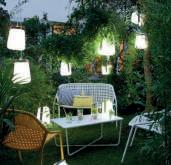





Our gardens will respond to a good watering by the autumnal showers and give us the last glorious burst of colour from the remaining flowers and shrubs in the gardens, and the leaves on the trees will give a beautiful medley of rich autumnal colours. What’s not to like? So, enjoy all this magnificence before the inevitable winter arrives!
I feel that I should really be wishing you all a Happy New Year, or at least a Happy New Gardening Year, because for me this is the start of my year in the garden. I look back on my achievements and mishaps of the year and look for ways to add even more to the good things and seek remedies for the things that didn’t work as well, or even, in a few cases, failed completely!
To give our plants all the encouragement they need to put on strong growth, to be able to withstand nature’s onslaughts, the soil needs feeding. Two of the main nutrients needed for good crop growth are carbon and nitrogen, and these elements occur naturally in green manure. Green manures are plants such as ryegrass, clovers, field beans, phacelia, mustards and buckwheat, which produce a dense mat of green growth that is cut down before the plant flowers. This will help to increase the fertility of your soil. These
plants bring different qualities ‘to the party’ with varying root depth and height. The one thing they have in common is that they are all annuals. Effectively it is the vegetarian alternative to farmyard manure.
Green manures add organic matter to the soil via their leafy top growth. Organic matter is also essential for growth; once broken down it becomes humus, which provides plant food. The more humus in the soil, the better aerated it is and so water moves through more easily, which in turn improves plant growth. Humus significantly affects the bulk density of soil and contributes to its retention of moisture and nutrients. Humus has many nutrients that improve the health of soil, nitrogen being the most important. In addition, as the roots decompose, they attract worms and good microbes.
Green manures can also be used to cover bare patches of soil in the spaces between crops, or during intervals between one crop and the next. This prevents the soil from drying out and allows it to hold moisture for longer – a factor becoming more and more essential with climate change! They also stop erosion by the sun, wind and rain. Certain green manures break up and aerate the soil, allowing microbes and beneficial insects to flourish. Other benefits of green manures include controlling pests in the soil, controlling
By Ronnie Ogier
Ronnie is a passionate gardener and now loves sharing her years of experience of success and failures in her own garden and sharing it with you. Also a keen runner, having been bitten by the ‘Couch to 5K’ bug!

weeds by occupying spare space and providing shelter for beneficial insects such as ground beetles. During the growing season sowing marigolds (Tagetes erecta or Tagetes patula) in your garden will help control harmful nematodes in the soil, which is why they are so useful as companion planting for tomatoes. These soil borne insects can attack the roots of plants leading to infections which ultimately becomes visible in a plant’s leaves.
Green manures of one type or another can be sown at any time during the growing season, i.e. anytime your grass is growing, no matter how slowly. In my potager there are spaces where summer crops have been removed and that provides an opportunity to sow green manures to cut down before I start planting again in the spring. Once cut down they will provide up to 5cm of surface mulch, for extra benefit this can be covered with wet cardboard topped with semi rotted compost. This will keep the worms active all winter!
And while the green manure and mulch are doing their work you can sit back, in the dry and warmth to reflect on what you have done this year – what has worked and what could be better, and then plan for next year. Don’t forget all the photos you’ve taken, look back at them and enjoy your summer in the garden.
Now is a good time to start looking at seed and summer bulb catalogues to place orders for 2024. Happy Gardening!
Green manures add organic matter to the soil via their leafy top growth

Self-employed GPs in France and Europe are being urged by unions to strike on 13 October and to continue the action for the following days. Over half of the country’s doctors and specialists are selfemployed and this strike action could see many appointments cancelled. At the time of press it is unknown how many doctors will be taking part, but if you do have an appointment on or just after this date, it is worth double-checking it hasn’t been cancelled. The strike action comes after failures in negotiations between doctors’ unions and Assurance Maladie to increase consultation fees.

Approximately 10% of used cars in France come with fake kilometrage, suggesting significantly lower usage than their actual history. This figure notably increases for vehicles exceeding two decades in age. To combat such scams, you can use the HistoVec platform, which offers a complimentary history check for pre-owned vehicles, including past kilometrage records from prior roadworthiness examinations. This service is free, and you have the option to request that the seller updates the site with the car's comprehensive history and particulars prior to purchase, if the information is not already available. While usage of the site is voluntary, a seller's reluctance to do so may give good cause to raise suspicions! https://histovec.interieur.gouv.fr
Operating the Cork to Roscoff ferry during the winter season is part of BrittanyFerries'celebration of the service's 50th anniversary. Throughout November and December, theferrynamedArmorique will transport passengers every weekend. Tickets are now on sale, starting at €179 for a one-way trip with a car and two reclining
seats, or from €210 for a cabinwithensuitefacilities. In previous years, Brittany Ferries had suspended this service from November to March annually. Looking ahead, Brittany Ferries has plans to introduce another vesseltothisrouteinMarch 2024, which will lead to a doublingofweeklycrossings during the summer and autumn months.



A couple whose dog unburied a box containing 400,000€ (cash) in 2021 while walking in the Valcros hills have been awarded half of the money. French law stipulates if the owner isn’t

found and a full three years has passed, the finder gets to keep 50% of it. The remainderofthemoneyhas beengiventothecommune, as it was found on the town’s communal land.

Let’s hear it for Lottie Dod, everyone. I mean, what a woman – what a life! Sorry, you don’t know the name? Well, actually, neither did I until recently. And that’s my point, because Charlotte “Lottie” Dod ought to be famous. The youngest ever winner of the Wimbledon Ladies’ Singles Championship, (a title she won five times), Lottie also excelled at golf, played hockey for England and took the silver medal in archery for Great Britain at the 1908 Olympic Games. Oh yes, I do know one other thing about Lottie Dod: if a male athlete had amassed such a superlative record there would be blue plaques all over the UK and Tom Cruise would have played him in the movie.


History pulsates with these forgotten women. When organising my thoughts into some approximation of coherence for these articles, I have occasionally quoted George Orwell, a powerfully intuitive writer. However, a recent biography of his first wife, Eileen O’Shaughnessy, a political activist, psychologist and major influence on his work, reveals how she has been reduced to a footnote. “Wifedom: Mrs Orwell’s Invisible Life” by Anna Funder observes that in “Homage To Catalonia”, George’s account of the couple’s experiences in the Spanish Civil War, he
mentions “my wife” 37 times but never once by name.

Or consider this. Last April The Guardian reported: “It took a quarter of a century but Mo Mowlam and other women who helped clinch the Good Friday agreement are finally gaining recognition.” Countless people were involved in the monumental task of bringing an end to thirty years of carnage in Northern Ireland. They came from both religious communities, across a wide political spectrum and either side of the Atlantic. So why was the contribution made by women the one to get sidelined?
We could fill this magazine with unsung heroines. There’s Nelly Bly, who practically invented investigative journalism, changed America’s perception of mental health and once voyaged alone around the world in 72 days. Or Ada King, a British mathematician whose work in the 1840s heralded modern computing; there’s the astonishing Isabella Bird, intrepid 19th-century explorer and naturalist; Caroline Norton’s blazing activism gained for British women their rights on divorce and child custody. We were all taught a roll-call of male explorers, inventors and trailblazers, yet countless women of equal achievement were simply written out. The roots of this inequity run deep, having been carefully nurtured for centuries.
Brian White lives in south Indre with his wife, too many moles and not enough guitars

The scientific world even has a name for this abomination: the “Matilda effect”, named for American campaigner Matilda Gage, who highlighted examples of female scientists having their work downplayed or even credited to male colleagues. It’s a given that politics worldwide is a horror show of misogyny but the wacky world of commerce fares little better. It’s said that among the top UK companies, the number of Chief Executive Officers named John exceeds the total of female CEOs.
Many women who did achieve success weren’t immune. Back in the 1800s writing was considered to be an ‘un-feminine’ occupation, forcing the likes of Jane Austen to publish her work anonymously. Likewise, all of Mary Ann Evans’ work, including “Middlemarch”, appeared under her pseudonym ‘George Eliot’. Here in France the celebrated and magnificently named Amantine Lucile Aurore Dupin de Francueil published some 70 books during her lifetime in the 19th century. But Amantine also circumvented the maleowned publishing world by adopting the pen-name George Sand. The legacy of all this? In 1997 the publishers of Joanne Rowling’s first Harry Potter book disguised her gender with two initials, worried that young boys would not read something written by a woman. Why did they suppose boys might think that way, I wonder?
This catalogue of bigotry gives me muscle spasms so let’s return to Lottie Dod. An unparalleled record of achievement across multiple sports which would have graced any athlete’s CV and bequeathed immortality. In addition to everything else, Lottie picked up a service medal for nursing during World War 1. As I said, what a woman. But despite it all, she remains largely unknown, commemorated by only a few.
So just for fun let’s contrast this with, say, Michael David Edwards. In 1988 Michael competed for Great Britain in the Olympic Games but finished last in his two events. He failed to qualify for the Games in 1992, failed again in 1994 and again 1998. Did this habitual underperforming condemn him to sporting obscurity like Miss Dod? Don’t be silly! On the contrary, global fame followed with huge media interest, multiple TV appearances and, in 2016, a biopic. In fact, so captivated was everyone by Michael’s stunning lack of success that “Eddie The Eagle” became the highestgrossing British film of that year. Take that, Lottie.
This catalogue of bigotry gives me muscle spasms






The oppressive heat of the summer is thankfully behind us and it is some time (hopefully) before the really cold period begins bringing the miserable high pressure systems that sit over us killing sport for weeks. Barbel feed hungrily and those leaves left on the trees after the drought are not yet falling in heavy numbers and fouling our lines. Carp will move into deeper water and the best of the predator season is ahead of us. Autumn is also a great time to target roach and chub. With so many options open it is only the trout anglers who feel hard done by as there is no grayling season over here as there is in the UK. Trout anglers won’t be able to cast a line until March next year.
By Clive KenyonChub are also a traditional autumn species and the middle reaches of the Charente and also the less well known Boutonne are known for their specimens.
The largest lake in our region is Lac de Vassivière and it is renowned for its predator fishing
Traditionally October brings the ‘second spring’ to our region when the long summer drought is brought to an end by seasonal rain causing the grass to green up and the shrunken rivers and lakes to swell. That of course has been subject to change and in the last five or six years the awaited rains didn’t arrive in October, but we had some heavy showers throughout the summer months.
For barbel anglers the choice of rivers holding these fish is very good; the Vienne river system including the Gartempe, Creuse, and Clain provide many opportunities for barbel fishing and further south the Charente holds stocks of barbel. If you are picking this magazine up on your way down to the Dordogne, Lot, or Aveyron departments, then both of those rivers hold barbel and to a quite good size too in the lower reaches.
If carp angling is your preferred option then the lower reaches of most of those rivers listed above also hold carp. They can even be found right up in the trout zone, but at a much smaller average size. There is a growing interest from the UK travelling carp anglers in the rivers Dordogne and Lot as a change from the heavily stocked monster carp still water venues that have sprung up all over France. If truth were known most of the large rivers and public lakes of our region will hold large and many of these will be truly wild fish that have never been landed. It is just a case of finding them.
Roach too will provide sport in the cooler months and there are some healthy specimens to be had in the River Charente around the Ruffec area and downstream into the Charente-Maritime Department. They are also found in the lakes of our region, especially the larger and deeper ones. Lac du Mas Chaban near to Massignac holds plenty of roach and bream and normally Lac de Saint-Pardoux would also be a venue worth exploring except that this year the lake will be partially drained for the facilitation of repairs and not reopen until Spring. The largest lake in our region is Lac de Vassivière and it is renowned for its predator fishing. Predators need feeding and therefore it comes as no surprise that the lake is also home to vast shoals of roach and bream, some of the former reaching specimen size. The lake is situated high up on the Haute-Vienne / Creuse border around 60 km east of Limoges and about the same distance south of Guéret. If you are daunted by where to start on a 10,000 hectare lake then head either for the lee bank assuming a warm wind or if not for Châteaucourt off the D43 on the south bank which is recommended by the tourist office guide as a good place to fish. But take your coat. The lake is situated at 800 metres above sea level and has its own microclimate which is several degrees colder than anywhere else in the region.
Sowing the Seeds
Sweetcorn and maize baits seem to have been around forever. But it was only as a series of accidents that the bait became so legendary. Back in the early 1970s at Redmire Pool, previously made famous by Richard Walker’s record capture of a 44lb carp, Chris Yates decided to use some sweetcorn left over from his dinner as bait after being frustrated by a lack of bites on conventional baits. It resulted in carp being caught from the outset. Unknown to him, other syndicate members of the same pool had already secretly begun to use sweetcorn and maize on Jack Hilton’s
suggestion owing to him hearing of some American anglers achieving success with corn baits. Sweetcorn and maize became staple baits at Redmire leading to Yate’s eventual capture of a 50lb carp using sweetcorn, and as a result became part of the carp fishing legend. Since then there have been many captures of 50lb+ carp on the golden grains including repeat captures of the then British record carp by anglers using imitation maize on their hair rigs.
Chris Yates' partner at Redmire was Rod Hutchinson and it is to him that we owe much of what we know about using particle baits for carp. The mixture of seeds used in particle baiting can be confusing to say the least and many anglers favour a ready-made blend of seeds and grains commonly sold as ‘pigeon conditioner.’ A similar product is readily available at garden centres and bricos over here in France. The purpose of the bird seed mixes, when properly prepared by soaking and boiling, is to keep the carp preoccupied sifting through the smaller offerings until it comes across a better quality morsel which of course is your hook bait. Maize is ideal as that hook bait as it is tough enough to withstand the attentions of smaller fish when mounted two or three on a hair rig and it is very attractive to carp. I have witnessed carp beaching themselves to get to raw maize grains spilled from a duck feeder. Another factoid about maize is that it probably led to two other important tactics used by anglers today; the bolt rig and method feeding. South African anglers fishing some of the large dams developed the self-hooking rig, now universally known as the bolt rig, due to their having to cast long distances to reach feeding carp and the rods and lines of the day not being powerful enough to be able to strike into the fish with such lengths of stretchy monofilament line out. The same anglers would mould ground and boiled maize around their lead weights and used maize grains as hook baits. Ground maize becomes sticky if simmered in a small amount of water as the starches are released and will cling to a lead weight or spiral feeder until it dissolves in the lake water. This sticky maize porridge type mix was the forerunner of what we now know as the method mix.

Les Chaillauds 16220 MONTBRON
Tel: 05 45 24 01 45
claudescathotel@gmail.com
www.claudescathotel.com
Chateau des Chiens (EI)
79190

Limalonges
Fully equipped, heated salon providing a safe, comfortable environment for your dog
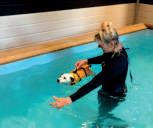


Contact Chris T. 06 74 80 47 25
● Large secure paddock
Email: chateaudeschiens@yahoo.com



All dog types, sizes & temperaments catered for by a fully insured, experienced groomer siret 83786431300015



Private pens, each with inside and outside space. Peaceful garden setting. Open 7 days a week. Viewings welcome by appointment. Recommendations available. Situated in Montemboeuf (16)
Alison Sacco Tel: 07 52 94 37 48
Petite Paws Cattery Certificates in cat care




E: alison@petitepaws.fr www.petitepaws.fr

"Cats don't have owners, cats have
THERE IS A RICH AND VARIED FAUNA IN FRANCE, AS IN ENGLAND, AND IT IS TEMPTING TO LOOK AT THE CREATURES WE ENCOUNTER AND ASSUME THAT THEY HAVE ALWAYS BEEN A FIXTURE OF OUR LANDSCAPE
But this is by no means the case. Many that seem as familiar as our own family may have been with us for only a few generations, while some that went back to the end of the last ice age have been lost, perhaps quite recently.
Wolves
The wolf, that bogey of fairy-tales and also of more adult fiction, has been a fact of life over all of history. Wolves were an ever-present danger to travellers right into recent history in some parts of Europe. One can even find folk-songs warning of the dangers of wolves, though in some of these, the “wolf” may have two legs! However, the fourlegged variety was finally declared extinct in France in 1937. For several hundred
The wolves seem to have taken matters into their own paws
years, the State had been trying to eliminate the hapless creatures. In the 18th and 19th centuries there was even a paramilitary unit dedicated to the destruction of wolves. The eradication was not, however, complete. There was a small population remaining in the wilds of South-east France. And now, with the added cover of European protected status, they are spreading into mainland France again. The population is small – possibly only 6700 individuals – but sightings and statistical analysis of reports suggests that by 2019 they had reached New Aquitaine. The wolves seem to have taken matters into their own paws. Fairly recently a dead wolf was discovered in the
 By Mike George
By Mike George
Mike George is our regular contributor on wildlife and the countryside in France. He is a geologist and naturalist, living in the Jurassic area of the Charente

Montmorillon/Lathus St Remy area (86 Vienne) and the experts remarked that, yes, cubs of the second year can leave the family group and travel a hundred kilometres or more looking for a new territory. Plus ça change … Better find your old copy of Little Red Riding Hood and start swatting-up!
Bears
Another surprisingly large creature that has been around since the glaciers retreated, but then almost made it to extinction, was the Eurasian Brown Bear. This animal stands about as tall as a man, and is admittedly a dangerous adversary, and it was nearly eliminated from France in the 20th century. All that remained were a few bears in the Pyrenees, on the France/Spain border. Now they are
protected, and the population has increased to some 70 individuals, which is still a perilously low number. There are a couple of sub-populations in the Cantabrian Mountains in Spain, totalling some 250 individuals.

Beavers
The Eurasian Beaver was hunted almost to extinction. Hatters wanted its fur, and perfumiers wanted its Castoreum secretion, which added a leathery note to perfumes.


Increasing scarceness meant that prices rose; beaver hats went out of fashion, and the few remaining beavers were given something of a respite. However, by the late 19th century, there were only 100 beavers left in France, living in the lower Rhone valley. The introduction of protection measures in 1968 and a number of reintroduction projects allowed the French beaver population to grow to 14,000 individuals by 2011, living along 10,500 km of watercourses.
Rabbits and hares
Rabbits and hares have always been a bit of a talking-point. Was it the Romans that brought them? They certainly enjoyed the convenience of rabbits being always available to supplement the diet, and a good jugged hare has always been popular with those that could catch a hare. In fact, it is likely that the British populations of these two animals were introduced, and the Romans are the likely culprits. The population of rabbits and hares probably lived out the last ice-age in the south of Europe (Italy, perhaps, and Spain) and spread northwards later, following agriculture as it opened up the sort of landscape the creatures favoured. The Channel, though, which would have established itself by the time they got that far north, would have been an impassable barrier.
Of course, humanity in its constant quest for an easy meal, has spread the rabbit virtually world-wide, with terrible consequences in some areas. Mutter the
word “rabbit” to an Australian farmer, and see what reaction you get!
Squirrels

Squirrels. Now there’s a classic example. Everyone knows that the lovable Red Squirrel is the native variety, and the Grey Squirrel is the gangster that has taken over in Britain. A native of the Eastern United States, Grey Squirrels were introduced to Britain in the 1870s as a decorative addition to country estates. Even the Zoological Society of London released some to breed in Regent’s Park. Now it has virtually displaced the Red Squirrel. It has not gained much of a foothold in France yet, and the EU has put a blanket ban on introducing, releasing, encouraging, importing, and breeding Grey Squirrels. There are some Grey Squirrels in Italy, and it is feared that they will inevitably cross into France. Eradication measures were blocked by Animal Rights groups. For the moment, though, if you see a squirrel in France, it is a red one. Of course, having said that, the Red Squirrel can range in colour to absolutely black on the uppersides, so look for ear-tufts (which the Grey Squirrel lacks).
Roe deer are long-term inhabitants. There is no sign of their having been introduced. Again, undoubtedly they lived through the last ice-age in the Mediterranean region, and moved north as the climate warmed. Strangely, in those regions where they formerly lived, they now prefer the higher

Humanity in its constant quest for an easy meal, has spread the rabbit virtually world-wideA Brown Bear mother in springtime with three cubs A Grey and a Red Squirrel in autumn. The Grey is the alien species A Roebuck pictured in a field of saffron crocuses The European Beaver is the largest European rodent
altitudes, whereas we know them as lowland creatures. Their spread seems to have been natural, whereas Fallow Deer, also native to the Mediterranean, have been spread more by introduction.
Wild Boar
The Wild Boar is the ancestor of domestic pigs. They have, however, far more aggression than their domesticated descendants. Males tend to be solitary, while females form groups. Piglets are striped for camouflage.

Their origin seems to have been Southeast Asia, from where they spread into Europe and North Africa. They seem to have naturalised themselves in Britain after the last Ice Age, but were getting scarce by the 1100s and seem to have been eradicated by the 13th century. In the 1990s, several escapes occurred from specialist farms where wild boar were raised for meat, and now a few colonies have established themselves. In France, of course, there seems always to have been a wild population. (If you missed my article on Wild Boar in September's edition, you can read the digital version here: www.etceteraonline.org - ‘Read Online’.)

Coypu and Muskrat
These two species have never been indigenous to France, or even Europe. The Coypu is native to South America and the Muskrat to North America. Both were brought to Europe to further the fur trade; the muskrat gave the fur musquash and the coypu gave nutria. Both were popular for the cheaper end of the fur market, and farming them was the economical way to guarantee supplies. Of course, escapes occurred, and wild populations established themselves. The Muskrat seems not to have thrived in Britain, but established itself in France. Coypu settled in both countries, finding the fens and East Anglia most congenial. There, in the late 20th century, a concerted effort was made to eradicate them, which proved successful by 1989. In France, however, they can still be found. They are waterloving, and swim well, and are usually to be seen in streams and ponds.
Some people mistake them for beavers. This is understandable, as all three are rodents, and much the same size, though the beaver is slightly larger. The easiest way to tell them apart is by the tails. A coypu has a furry tail, round in crosssection, while a muskrat has a furry tail that is flattened vertically, which it uses as a rudder to steer when it swims. The beaver, of course, has a horizontally flattened tail which is scaly for most of its length.
Both the coypu and the muskrat, like the Grey Squirrel, are on the European Union schedule of invasive species (the Union List), which means that they cannot be imported, bred, transported, commercialised, or intentionally released into the environment in the whole of the European Union.


JUST WHEN YOU THOUGHT YOU COULD RELAX, LET ME REMIND YOU THAT WE DO HAVE SOME VENOMOUS CREATURES ON OUR PATCH
We have nothing as dangerous to life and health as do the more tropical regions of the World, but still, we should know what to avoid, and what to do if we get too involved. Let’s have a look at them.
Snakes
Venomous snakes are rarely seen. Most people go through their whole lives and never see one. I have only seen two adders in the wild in my life so far. Deaths from adder-bite happen at the rate of about ten
per century in Britain; these days it is more like 1 per century. Over the whole of West and Central Europe only 5 or 6 snake-bite deaths are reported annually. Statistically, your pets may be in more peril than you.
There are four venomous snakes in France, but only two, the familiar Adder Vipera berus (Fr: Vipère péliade) and the Asp Vipera aspis (Fr: Vipère aspic), are widespread, and only the asp occurs in our part of France. They look much the same –


varying shades of brown with darker brown markings. There is usually (but not always) an inverted “V” on the back of the head, but to look for a dark zig-zag all along the back is misleading – this patterning can be absent or form blobs rather than a continuous mark. The distinguishing feature between the two species is the asp’s rather cute tip-tilted nose.
The way to confirm that you are dealing with a viper is to examine its head. Most
non-venomous snakes have oval-shaped heads with relatively large scales on the top, and the eyes have round pupils. The two vipers, however, have triangular heads, the scales on the top are relatively small, and the eye-pupils are vertical slits. Of the two, I am afraid that it is the Asp that is considered the more dangerous. In spite of this it is probably not a descendant of Queen Cleopatra’s bosom-biting Asp (see Shakespeare), which was an altogether more deadly species, probably an Egyptian Cobra Naja haje. This has a more lethal bite than a viper, but the pain of the venom is less.
Both snakes are rather small (up to 70 cm) and tend to avoid people. Snakes possess an inner ear structure linked to the jaw which detects ground-transmitted vibrations, and there is evidence that they also have a limited ability to detect airborne sounds through the skin. They will quietly make themselves scarce if they detect your approach. Of course, all snakes will defend themselves if they are cornered or attacked.
The two other venomous snakes in France are both confined to the southern coastal



Snakes possess an inner ear structure linked to the jaw which detects groundtransmitted vibrations
region. They are the Montpellier Snake Malpolon monspessularius ( Fr: Couleuvre de Montpellier) and the Meadow Viper or Orsini’s Viper Vipera orsinii (Fr: Vipère d’Orsini). Of these, the latter, while a true viper, is so rare as to be discountable. The Montpellier Snake is unlike the others in that, as its French name suggests, it is not a viper. It is in fact our sole representative of the opisthoglyphous (or back-fanged) snakes, which deliver their venom through their hind teeth. Thus, to envenomate their prey, they must hold it in their teeth and inflict wounds, then allow the venom to seep into those wounds. No quick injection. A human is unlikely to stand around and let that happen!
Should you receive a bite from any snake, check it immediately. If there is any sign of a puncture, you may have been injected with venom. STAY CALM. Any excitement or rushing about will speed the distribution of the venom around the body. DON’T use a tourniquet or slit open the wound to suck out the venom – you will only make things worse. The venom will not take serious effect (apart from the local pain!) for an hour or two; plenty of time to get to hospital. Try to remember what the snake looked like (don’t try to catch or kill it or you might get another bite). Remember, unless you suffer a rare allergic reaction, you are very unlikely to
die, especially if you get prompt treatment. Even if untreated, death results from asp-bite in only 4% of cases. The best advice is to leave all snakes alone. Don’t bother them, and they will not bother you. If you find one in your house or shed, give it freedom to leave – it certainly doesn’t want to share your home! And don’t poke at it to identify it - take a photograph if you are interested. But remember – the snake is even more frightened of you than you are of it!
All spiders are venomous, but few spiders have the strength or size to break the skin of a human and inject venom. I have heard reports of wolf-spiders and house-spiders managing to get a quick bite in on an incautious hand that disturbed them, but if it were true, little seemed to come of it. Any pain is transient, and no serious consequences have been noted. However, there are a few larger ones that can cause trouble.
The Brown Recluse, Loxoceles recluse, (Fr: La Recluse brune) and The Mediterranean Recluse Loxosceles rufescens, (Fr: L'araignée violoniste). Both these species are predominately to be found in the south of France although both species can extend to other regions of France. Neither is likely to cause death unless a serious health condition exists to complicate matters, but there is a high risk of necrosis (death of the affected tissues) and infection without treatment, which must be sought immediately. However, the spider’s name suggests its lifestyle. It


just wants to hide. A friend of mine one autumn took down her coat to put on for the first time for some months, and was dismayed when a Brown Recluse Spider ran out of it, down her arm and across her hand, before disappearing under the furniture. We kept a close eye on her hand for some days, but nothing transpired; presumably the spider just ran for it! Biting would be a waste of escaping-time.
The Mediterranean black widow or the European black widow, Latrodectus tredecimguttatus (Fr; La Malmignatte or Veuve noire d’Europe). In France this red-blotched shiny black spider, about the size of a large pea, is found mainly in the south of the country and in Corsica, but it also goes up along the Atlantic coast of New Aquitaine to Brittany. Only the larger female is capable of biting a human, and only when feeling threatened. The venom

in this case is a neurotoxin that affects the nervous system. The bite can lead to abdominal pain, muscle spasms and heavy sweating as well as a burning or prickling sensation of the affected area. Death is a very rare consequence of the bite, however without treatment patients can suffer unpleasant symptoms resulting from the bite for several weeks.
The Green-fanged tube web spider, Segestria florentina, (La Ségestrie Florentine) is usually hidden in its silken tube in cavities in walls or timbers, but if it does bite, the result is reportedly similar to a bee-sting, and complications usually do not follow. However, get it checked out medically.
Probably the most dangerous creatures in France, however, have no truck with venom. A quick check of safety websites seems to suggest that the two things to avoid are mosquitoes and wild boars. Opposite ends of the size spectrum, but both potentially deadly!

Neither is likely to cause death unless a serious health condition exists to complicate mattersThe Brown Recluse Spider has a
body length up to an inch in size. It can move quickly, but is very shy and retiringThe Green-fanged Tube-web Spider is very black, with iridescent fangs. the female's body can be up to an inch long The European Black Widow Spider is oil-black but has a number of red or orange spots. The female body is about a quarter of an inch long. The Mediterranean Recluse spider is smaller than the Brown Recluse, but similar in appearance
NASA's Voyager 1, launched in 1977, is a groundbreaking space probe that continues its historic odyssey beyond our solar system's boundaries

We will be able to look out for a great show from the Orion Meteor shower in favourable conditions, an annual visitor will return to our skies in the form of Comet 103P Hartley, and Jupiter will again be a constant presence in our night skies. Read on to find out how, where, and when to spot these and many other astronomical objects throughout the month of October. During the next few months we will be able to mark the change in seasons by the return of a few different constellations in our night sky. A few of the main ones to look out for will be:
Orion is returning to the eastern skies just after midnight. We will first be able to spot the bright orange star Betelgeuse on the left shoulder of the Hunter Orion. Gemini, or the Twins, will be found a little further to the northeast with the brightest stars of Castor and Pollux being first to clear the horizon.
Taurus is improving in its position throughout the month as it seems to lead Orion across the southern vista.
On the 2nd and 3rd, around 04h30, the waning gibbous Moon will seem to pass by Jupiter, Uranus, and The Pleiades. Look high in the sky to the south. At around 07h00 on the 7th the Moon will be positioned close to Castor and Pollux. This view will be found in a south easterly direction. On the 23rd and 24th Saturn will be positioned close to the Moon from around 23h00. Look towards the south west.
Comet 103P (Hartley) will, perhaps, be visible as it brightens in magnitude throughout the month. Depending on your specific location, its exact position in the night sky will vary slightly. Based on a Bordeaux position, the Comet will be seen passing through the constellation of Gemini, below the two bright stars Castor and Pollux. The distance of Comet 103P/Hartley from Earth, at time of going to print was 67,471,743 kilometres, equivalent to 0.451021 Astronomical
Units. Light takes 3 minutes and 45.0615 seconds to travel from Comet 103P/Hartley and arrive to us.
It is very difficult to predict the brightness and possible visibility of comets due their very dynamic behaviour, so keep your fingers crossed that it could become visible with at least binoculars!
The Moon phases and observation tips
Last Quarter Phase : 6th just before 15h00
New Moon Phase: 14th at around 19h00
First Quarter Phase: 22nd at 04h30
Full Moon: 28th around 21h30
The phases of the Moon are worth noting during the peak of the Orion Meteor shower. This falls on the 20th to the 22nd of the month. The Moon will show a 35% waxing phase on the 20th, a 46% waxing phase on the 21st, and a 58% phase on the 22nd. The Moon will set before the most favourable observing times for the Orionids so it will not brighten the sky too much.
The Planets this Month
Mercury will be best viewed in the first week of the month when it is a bright morning planet.
Venus is a wonderful sight now, a bright morning object, at it’s furthest from the Sun.
Mars is not visible this month.
Jupiter is very bright and very well positioned for observation and imaging, and will be very close to the Moon on the 2nd.
Saturn is looking good and can be found close to the moon on the 23rd and 24th.
Uranus will be close to the Moon on the 29th, so with a telescope it could be a great sight.
Claire Wardlaw, originally from Edinburgh, lives in the Charente with her husband. Since their move nearly 6 years ago, Claire has become passionate about astronomy

Neptune could be visible at its highest point in the south with binoculars or a telescope.
Image of the month: Moon landing Chandrayaan-3 is a space probe of the Indian space agency, the Indian Space Research Organization, launched on 14th July 2023. The third mission of the Chandrayaan program, its objective is to collect scientific data on the Moon. The space probe landed on the surface of the moon, at the south pole, on 23rd August. The Vikram lander and Pragyan rover are expected to operate for two weeks, from lunar sunrise to sunset.
Meteor Shower for October: The Orionids and the Southern Taurids
Firstly The Orionids, which are associated with the Comet 1P/Halley, will be active from the 5th to the 30th of October. This year the peak of activity will be spread across a period of a week around the 21st when rates could be 25 per hour. It is best to wait until the constellation of Orion is well above the horizon for the best chance of spotting a few meteors, and don't forget to let your eyes become adjusted to the dark sky.
The Moon is showing a first quarter phase on the 22nd so observing conditions will be quite good. A second but less active meteor shower in October is the Southern Taurids. This shower will peak on the 10th. We can distinguish between these and the Orionids by noticing where in the sky they emanate from. The constellation of Taurus can be found to the north and west of Orion. The other difference to look out for is the fact that Taurids are often slower with bright fireballs.
Virtual Space Journey: Catching up with Voyager 1
This small spacecraft named Voyager 1, which is the size of a family car, was launched from Earth in 1977. It has been so simple for us to catch up with this craft

It is very difficult to predict the brightness and possible visibility of comets due their very dynamic behaviour







- Voyager 1 - on this virtual space journey. The Voyager 1 probe is now more than 23 billion kilometres away. This is a considerable distance which is the result of a 44-year journey. To give you a great example of how far a light year actually is, it will take Voyager 1 (NASA's longestlived spacecraft) over 17,000 years to reach 1 light year in distance travelling at a speed of 61,000 kph. Onboard the craft is an amazing golden record which contains sounds and images which communicate life and culture here on Earth to any intelligent life form it may
Onboard the craft is an amazing golden record which contains sounds and images which communicate life and culture here on Earth
encounter. Shall we take a quick look as we pass on our way? Included are natural sounds (including some made by animals), musical selections from different cultures and eras, spoken greetings in 59 languages, human sounds like footsteps and laughter, and printed messages from President Jimmy Carter and UN Secretary-General Kurt Waldheim.


India made history on August the 23rd when they successfully landed on the southern pole region of the Moon. The mission is part of the longer term endeavour which is exploring the possibility of man inhabiting the Moon. As part of this mission the Pragyan rover will be measuring temperatures and seismic activity on and beneath the surface of the Moon.

Many man-made objects have been left behind on the Moon over the years. The Soviet spacecraft Luna 2 (Lunik 2) was the first humanmade object to reach another world when it crashed into the Moon on 14th September 1959. The NASA Catalogue of Man Made objects on the Moon lists 796 items. Amongst this list is included flags, photographs, plaques from Earth, spacecraft debris, hammers, geological tools, and 96 waste bags! Join
Indian lunar lander Chandrayaan-3 successfully touched down on the lunar surface on August 23, 2023, making India the fourth nation to successfully land on the Moon and the first to land in the south pole region


THE SWEEPING OF A CHIMNEY IS A SURPRISINGLY CONTENTIOUS SUBJECT HERE IN FRANCE
Those on social media sites will be familiar with individuals insisting this and that about whether or not you have to have your chimney swept every year, whether you can sweep it yourself or even if a ‘bûche de ramonage’ is sufficient enough to protect you from a chimney fire. Today we cut through the noise and bypass the ‘pub talk’ finally putting an answer to the chimney faux pas we see constantly online.
Legal requirements
In November 1979, the 6 sections of Article 31 of the ‘Règlement sanitaire départemental Type’ (RSDT) came into effect. Section 31-6 ‘Entretien, nettoyage et ramonage des conduits de fumée’, stipulates the conditions that legally must be met for the maintenance, cleaning and sweeping of fireplaces. Failing to comply with the conditions below could land you with a category 3 fine of up to 450€!
initiative at least once a year or more depending on the use and duration of use of the fire.
The sweeping of the chimney must be carried out by a company qualified for this purpose by the professional body for building qualifications and classification. The company must issue a certificate (certificate de ramonage) to the person concerned. To view the full list of conditions, you can read Article 31 of the ‘Règlement sanitaire départemental Type’ (RSDT) here:
https://www.legifrance.gouv.fr/loda/artic le_lc/LEGIARTI000006363881
It is therefore recommended that you check your own policy or contact your insurance agent
Heating appliances, boilers and/or kitchen devices (ranges) and their connecting pipes (flues) need to be verified, cleaned and rectified (if necessary) at the user’s
Most insurance companies require you to produce a valid ‘certificat de ramonage’ from the past 12 months should you ever have a chimney fire. Without being able to provide this document, your house insurance policy could be invalidated, leaving you without cover should the worst happen. It is because of this that most homeowners in France choose to contact a professional chimney sweep to sweep their chimney once a year.
Since going to print, the law for having your chimney swept each year has changed.
, it is now a
. Please pass on this information to people. An updated article will appear in November’s edition.
ByKristian JenningsKristian of Jennings Chimney Sweeping specialises in Chimney problem diagnosis and is a member of the Guild of Master Chimney Sweeps

Different insurers have different requirements. It is therefore recommended that you check your own policy or contact your insurance agent to understand the requirements of your insurer. Remember to ask:
1. Do I need to sweep my chimney in order for you to continue providing cover?
2. How often do you require me to sweep my chimney?
3. Can I sweep my chimney myself or do I need to have it cleaned and inspected by a professional?
4. Do you need me to send you the certificate de ramonage once the sweep has been completed?
The reality of the situation is most homeowners will have their chimneys cleaned and inspected annually simply to comply with their insurance. Although there is a legal requirement to have the chimney swept in France, there is currently no way that this is being policed, meaning that the aforementioned category 3 fine would likely only be issued in the event of a chimney fire. It is of course still a wise idea to have your chimney swept regardless.




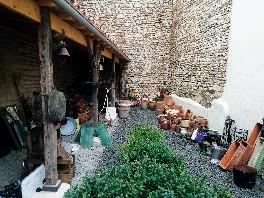


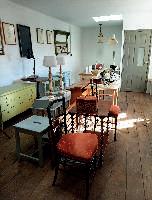

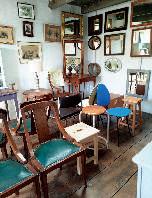

















Hello and welcome to October. I cannot believe how quickly time passes these days. Maybe it’s just my age? I find I’m increasingly moaning about the weather and the age of policemen (and women of course). What is the correct term these days? I guess ‘copper’ would cover it. Are we even allowed to say that? Anyway, I hope you’re all keeping fit and well and ready for the instant hit of excitement and information that this column almost certainly doesn’t bring. Freesat good, Freeview bad. Right, move on.
Starlink is a brilliant satellite internet system. However, one thing that can be overlooked is that - as standard in the box - it only comes with a 15.2m (50ft) cable which runs between the dish and the

modem. In quite a few cases, this is insufficient. The cable is not like TV coax and cannot be extended (or indeed shortened). So, when ordering Starlink you need to have a good idea of where you’d like the modem to be situated in the house and roughly where the dish will need to go. You can order longer cables when ordering the kit, but it can be frustrating if you don’t know the standard one is only 15.2m.
Not only satellite TV related, as it applies in all situations where loft or dirty barn access is required, but I was sent this information (thank you Arthur) regarding the hidden dangers of bat droppings. "You can develop histoplasmosis from exposure to bat droppings. So if you need to work anywhere around bat droppings you need to spray with water to keep the dust down and remove all the droppings. Anyone with COPD or asthma issues should not live anywhere near bat droppings. The fungus is airborne." I did not know this. Be aware.
There still seems to be a belief that if you have a ‘smart’ TV, then that will magically grant you access to UK TV channels. It doesn’t. It does give you access to things
like Netflix and YouTube but it does not automatically give you access to the standard channels. Chances are that you’ll still need a satellite dish for the stuff you want to watch.
Please remember that I no longer cover the same areas as I used to. I cover a 90 mins radius of 79240. Google Maps will help you with this. Just put in my postcode and your address to see the distance.
It does give you access to things like Netflix and YouTube but it does not automatically give you access to the standard channels












